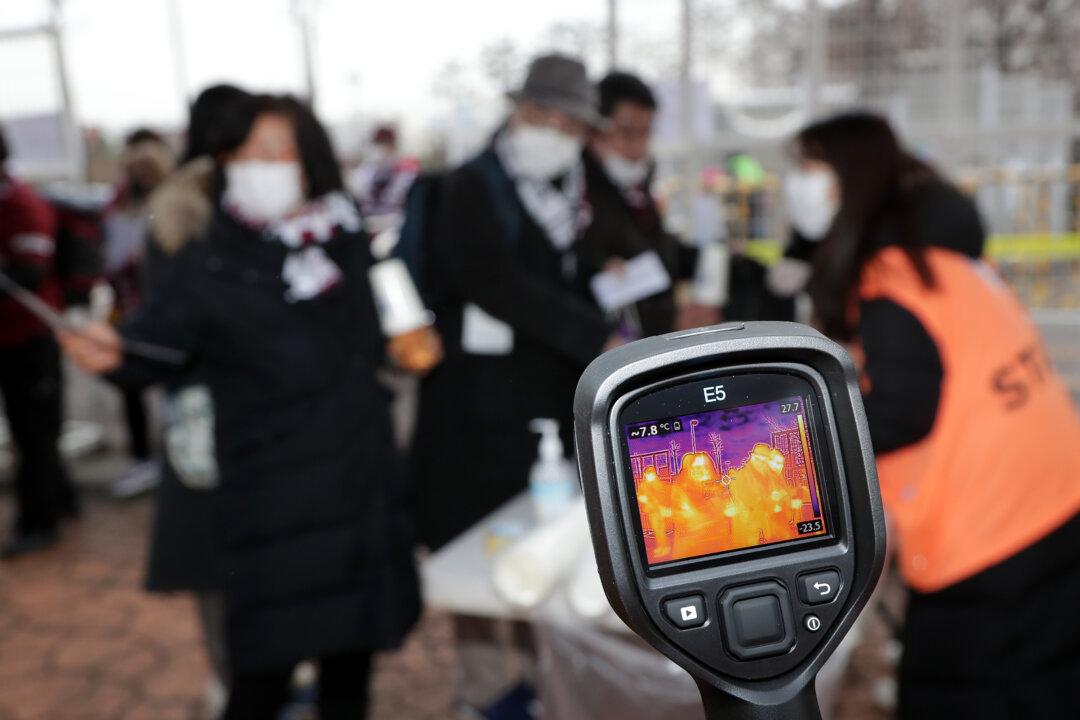The number of confirmed novel coronavirus cases in South Korea linked to a church in the central city of Daegu has surged, with one patient believed to have infected dozens of people, officials said on Feb. 20.
South Korea’s Centers for Disease Control and Prevention (KCDC) said in a statement Thursday that it had confirmed a total of 31 new cases of coronavirus, also known as COVID-19, bringing the total number of known cases in the country to 82.





